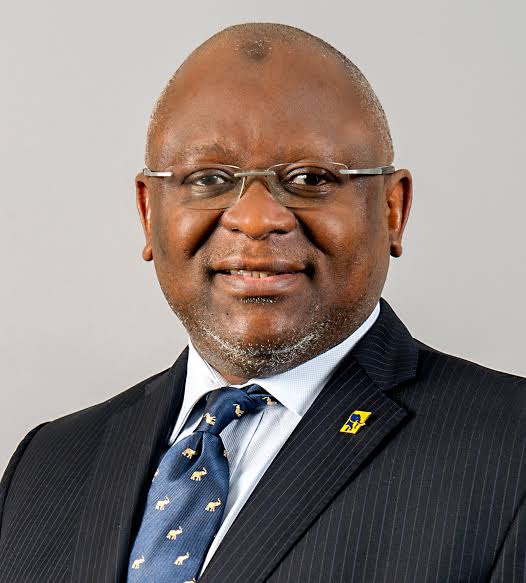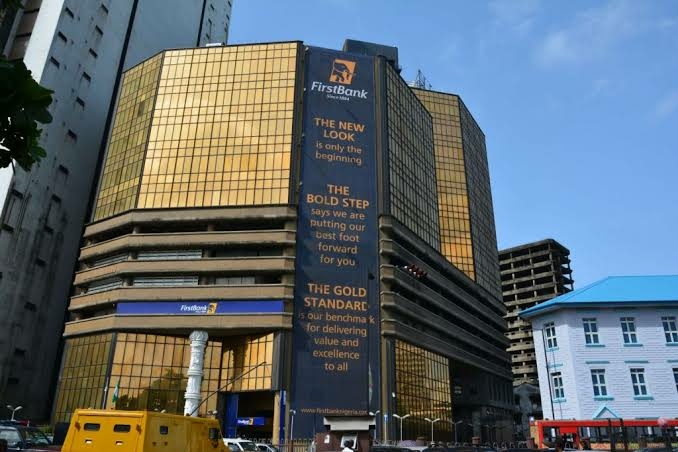First Bank Nigeria Ltd. says it will use its extensive experience in assisting trade businesses, particularly SMEs, to assist the Federal Government in its efforts to diversify the economy’s revenue base.
FirstBank CEO Dr Adesola Adeduntan stated this on Tuesday during the bank’s Non-Oil Webinar Series.
The webinar was titled “Roadmap to Building Sustainable Non-Oil Export in Nigeria: Harnessing AfCFTA and Agro Commodities,” according to the Nigerian News Agency (NAN).
Adeduntan stated that the bank would use its expertise to facilitate discussions that would allow existing exporters to expand their export businesses while also encouraging new entrants into the non-oil export industry.
He believes that the non-oil sector has tremendous value and opportunities for the country in terms of job and wealth creation, foreign exchange earnings, and GDP growth.
He stated that the Africa Continental Free Trade Agreement (AfCFTA) provides an opportunity for Nigeria to be deliberate and appropriately position itself to become Africa’s export hub.

“Given our population, resources, and economic size, this is doable.”
“At FirstBank, we’ve been at the forefront of driving economic growth, and we’ll use our reach and connections to orchestrate growth in non-oil sectors,” he said.
Adeduntan stated that the bank had established an Export Desk to support the needs of exporters, including the development of export products and solutions for pre and post-export financing and services.
Furthermore, Dr. Biodun Adedipe, Chief Consultant at B. Adedipe Associates Ltd., stated that the country must shift its focus to an export-led growth or import substitution economy.
Adedipe noted that the world in which Nigeria operated prior to the COVID-19 pandemic was rapidly disappearing, emphasizing the importance of focusing more attention on the country’s non-oil export industry.
According to him, there is a need to build supporting infrastructure to aid export business, as China has done deliberately in order to boost economic growth.
He went on to say that aggressive targets should be set and stringent measures implemented.
“Other countries will act on us if Nigeria does not act,” he said.
Dr. Ezra Yakusak, Chief Executive Officer of the Nigerian Export Promotion Council (NEPC), commented that the council developed the zero oil plan in 2016 as a strategy to shore up foreign exchange in the non-oil sector.
Yakusak, represented by Mr Folorunsho Akintunde, Deputy Director, NEPC, stated that through the plan, export policies for 22 major products worth $30 billion were developed.
The council, he claims, is preparing and positioning SMEs for AfCFTA through a variety of trainings, programs, and incentives.
He stated that the NEPC was collaborating closely with Afrexim Bank and ITC to ensure that Nigeria was prepared for AfCFTA, particularly with regard to the Export Trading Company.
Comptroller Malanta Yusuf, Customs Area Controller, Apapa, also advised exporters to familiarize themselves with items that can be exported and those that cannot.
He also advised them on clear product descriptions and proper packaging to facilitate product acceptance.
In addition, Mr Eric Intong, Regional Chief Operating Officer, Anglophone West Africa, African Export-Import Bank (Afreximbank), stated that the bank developed various products, programs, and initiatives to boost intra-African trade.
Intong stated that the bank would spend $40 billion on intra-Africa trade and investment over the next five years to support AfCFTA.
He went on to say that this was twice as much as had been disbursed for the same purpose in the previous two years.

















Discussion about this post